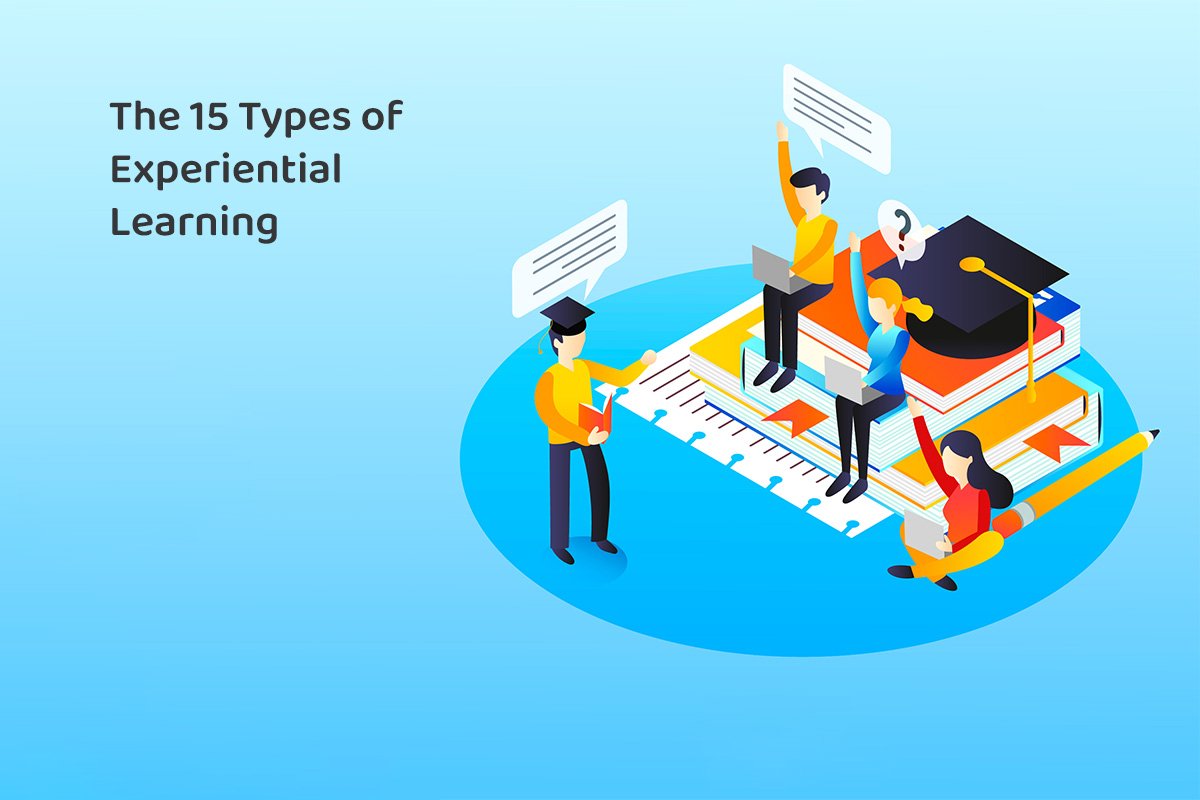The 15 Types of Experiential Learning
Growing Importance of Experiential Learning in Education
Experiential learning has emerged as a cornerstone in the evolution of Indian education, marking a significant shift from traditional pedagogies towards more immersive, hands-on approaches. Its growing importance resonates deeply in a rapidly changing world, where the acquisition of practical skills, critical thinking, and adaptability stands as essential pillars for success.
In India, the educational landscape is witnessing a notable embrace of experiential learning across diverse institutions. This approach goes beyond rote memorization, encouraging active engagement, problem-solving, and real-world application of knowledge. As industries evolve and demand multifaceted skill sets, experiential learning has taken center stage, offering a pathway for students to bridge the gap between academic learning and practical proficiency. This shift underscores a recognition that education must extend beyond textbooks, nurturing holistic development and fostering innovation among learners.
Various Types of Experiential Learning
Experiential learning in India manifests through various forms, each tailored to engage learners in practical, hands-on experiences that transcend traditional classroom boundaries.
- Hands-On Learning: Emphasizing tactile experiences, hands-on learning in India immerses students in practical activities, experiments, and workshops. This approach nurtures skill development and deeper understanding by engaging multiple senses, fostering a connection between theory and practice.
- Project-Based Learning: In India, project-based learning encourages students to delve into extended projects that require research, problem-solving, and creative solutions. It promotes autonomy, critical thinking, and collaboration while addressing real-world issues or inquiries.
- Outdoor Education: Embracing India’s diverse landscapes, outdoor education offers opportunities for learning in natural environments. It instills environmental stewardship, teamwork, and holistic development by connecting learners with nature.
- Service Learning: Integrated into Indian educational institutions, service learning involves students in community-based projects that address social issues. It blends academic learning with hands-on service, fostering civic responsibility and empathy.
- Internships and Co-op Programs: These programs offer students real-world work experiences, allowing them to apply classroom knowledge in professional settings. In India, internships and co-ops cultivate industry-relevant skills and provide insights into career paths.
- Simulations and Role-Playing: Simulations and role-playing activities simulate real-life scenarios, enabling students to explore different roles and situations. These immersive experiences promote decision-making, empathy, and problem-solving skills.
- Study Abroad Experiences: Indian students participating in study abroad programs gain exposure to diverse cultures and educational systems. These experiences broaden perspectives, enhance global awareness, and foster independence.
- Apprenticeships: Apprenticeship programs in India facilitate hands-on learning under the guidance of experienced mentors. They offer practical skills training and industry-specific knowledge, preparing students for specific trades or professions.
- Virtual Experiential Learning: Leveraging technology, virtual experiential learning in India offers immersive experiences through virtual simulations, augmented reality, or online interactive platforms. It provides accessible hands-on learning opportunities in digital spaces.
- Experiential Learning through Reflection: Reflection-based learning encourages students to contemplate their experiences, derive insights, and connect them to broader concepts. It enhances critical thinking and self-awareness.
- Collaborative Learning: Collaborative experiences promote teamwork, communication, and shared problem-solving. In India, collaborative learning settings encourage peer-to-peer interaction and knowledge exchange.
- Case-Based Learning: Case-based learning presents real or hypothetical scenarios for analysis and discussion. This approach in Indian education enhances analytical skills and the application of theoretical knowledge to practical situations.
- Experiential Learning in STEM Education: Integrating experiential learning in STEM (Science, Technology, Engineering, and Mathematics) education in India involves hands-on experiments, projects, and labs. It fosters curiosity, innovation, and skill development.
- Informal Learning Environments: India’s informal learning environments, such as museums, cultural centers, and maker spaces, offer experiential learning opportunities beyond traditional classrooms. These settings encourage exploration and discovery.
- Collaborative Learning: Collaborative experiences promote teamwork, communication, and shared problem-solving. In India, collaborative learning settings encourage peer-to-peer interaction and knowledge exchange.
Conclusion
The landscape of experiential learning in India stands as a testament to the evolution of education, embracing innovative methodologies that transcend traditional boundaries. From hands-on experiences to immersive simulations and collaborative ventures, the diverse array of experiential learning approaches reflects a shift towards holistic education.
By integrating these varied methodologies, Indian education fosters not just knowledge acquisition but also the development of critical skills, adaptability, and a deeper understanding of real-world applications. This multifaceted approach ensures that learners are equipped with the tools and experiences essential for success in an ever-evolving global landscape. Experiential learning in India represents a paradigm shift that not only enriches educational experiences but also prepares learners to navigate complexities with confidence and ingenuity.
Subscribe to the Sakal NIE Program
Subscribe to the Sakal Newspaper in Education (NIE) Program and unlock a world of enriching educational opportunities! Designed to complement traditional learning, this program offers a treasure trove of resources, engaging content, and interactive activities that cater to learners across various age groups and subjects.
By subscribing to the Sakal NIE Program, educators, parents, and students gain access to a wealth of educational materials that go beyond textbooks, fostering curiosity, critical thinking, and a deeper understanding of diverse subjects. Join this educational journey that transcends the confines of classrooms and textbooks, providing a gateway to immersive and experiential learning experiences. Subscribe now and embark on a transformative educational adventure with Sakal NIE!





Leave a Reply